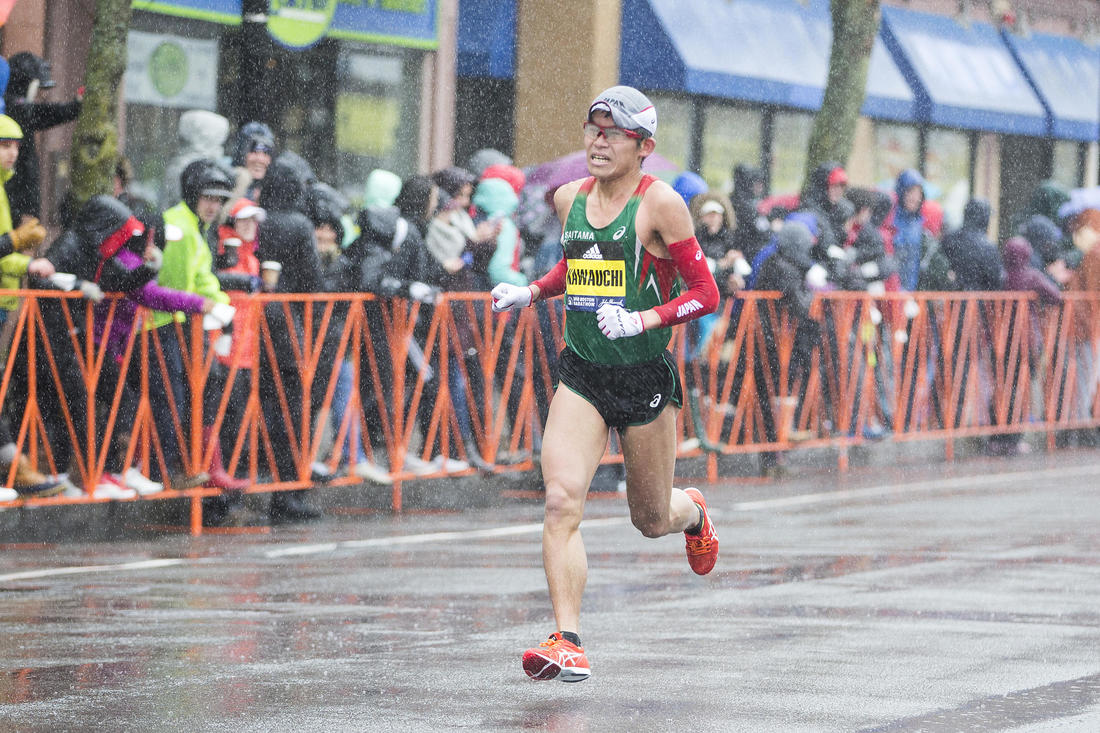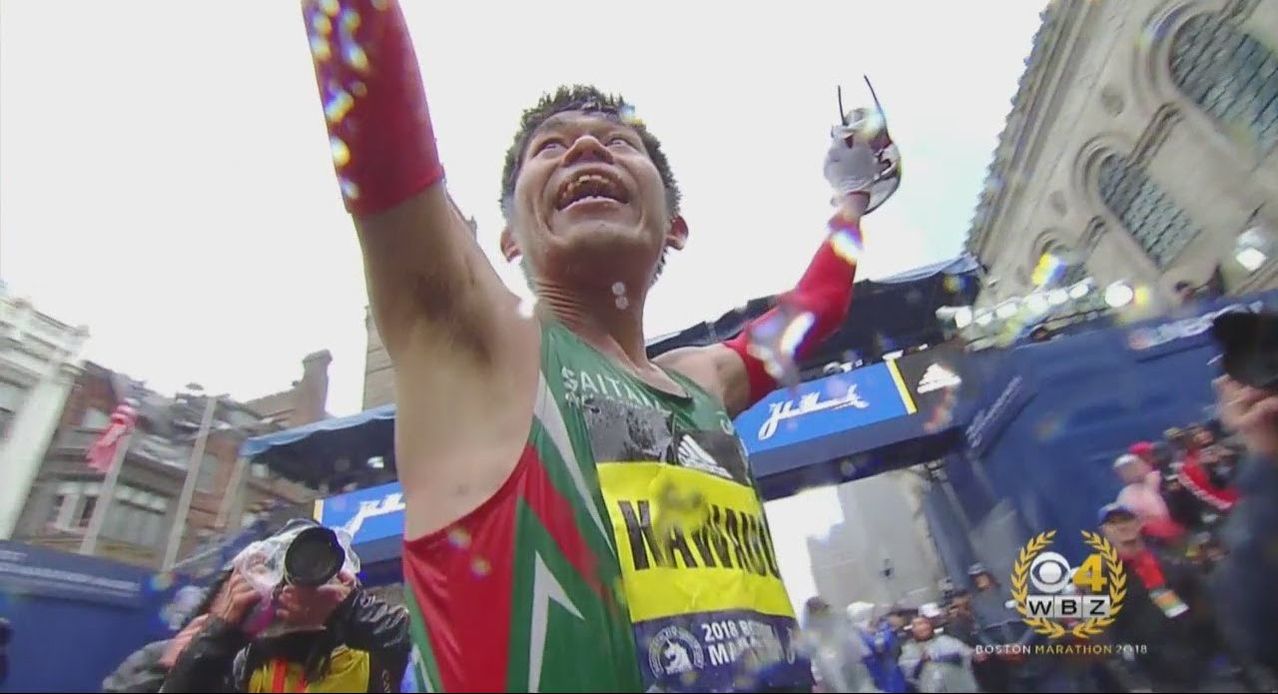The most remarkable aspect of this victory was not that Kawauchi chased Kiriu down, or that the weather was so inclement- the race was run in temperatures hovering around 0 degrees celsius with driving wind and rain, it is that Yuki Kawauchi is not a professional athlete.
31 year old Kawauchi, is an anomaly in the world of Japanese running. He does not belong to one of Japan’s famed corporate running teams, where athletes are paid to train for the team and traditionally, the sole focus of that team is to obtain victory on behalf of the company. Kawauchi has a full time job as a high school administrator for the Saitama Prefecture, which is in the greater Tokyo area. Kawauchi is not sponsored. He races at his own expense, and he fits his running around his work. Training once a day on weekdays, often for an hour. He will run long training runs on his off days, up to 50 km or more at a “jogging” pace. Kawauchi will race a half marathon most weekends, and averages a marathon a month. He’s aiming for 100 sub 2:20 marathon finishes prior to the 2020 Olympic games.
From the perspective of a coach, Kawauchi flies in the face of established wisdom. Perhaps the fact that Kawauchi does not have a coach is the reason why he is free to race at the volume he does. Certainly, if an athlete that I was coaching explained to me that they wished to run 12 marathons in a year, 36 half marathons and countless other track, 10 km, or ultramarathon races- all at what Steve Prefontaine described as “suicide pace” then I would be calling their judgement into question. However what is clear from Kawauchi’s performances is that he obviously finds that level of competition important enough that he has made it happen, and continues to make it happen.
I do not know the reasons why he is so driven, although I am intensely curious. I would strongly suggest that the notion of success is relative to the individual. On one level, Kawauchi shames us all with the volume of racing he undertakes and the level to which he competes. However I do not believe that comparison in this case is necessarily healthy. I am of the mind that our individual successes hold no greater or no less value that Kawauchi’s, and this is important to hold in our minds.
Absolutely, Yuki Kawauchi deserves to be celebrated (and perhaps studied at a later date to understand what makes him able to withstand such a gargantuan volume of races) and I do not wish to get into a state of mass delusion, few of us are ever likely to win a marathon like Boston, on that level, Yuki Kawauchi is absolutely exceptional. I think that what we share with Yuki Kawauchi is the ability to decide what is important to us, and with that, to achieve what we believe is important to us. Only we can decide that. Only we can make that happen.
What are your thoughts on Kawauchi’s success? His methods and racing load? I would love to hear from you.





